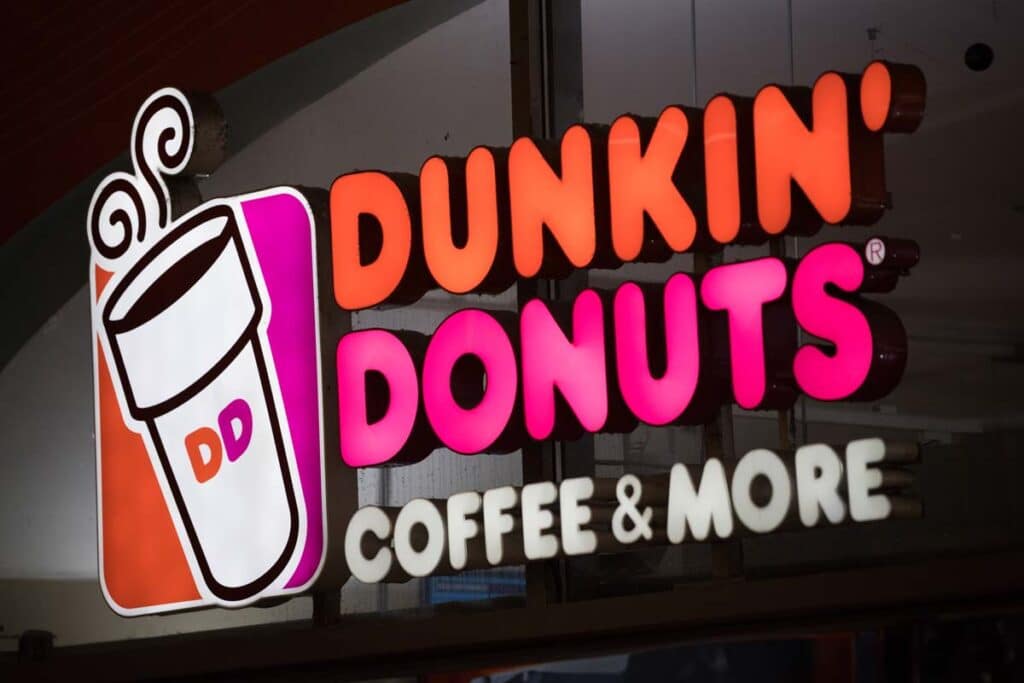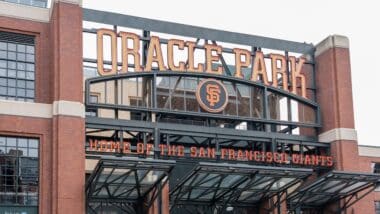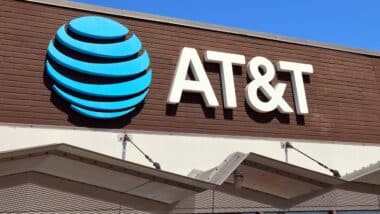
Dunkin’ class action overview:
- Who: Two Dunkin’ consumers have filed a class action lawsuit against the coffee and doughnut company.
- Why: The plaintiffs say Dunkin’ charged them hidden fees for dining in-store.
- Where: The Dunkin’ class action was filed in a California federal court.
Two Dunkin Donuts consumers have hit the coffee and donut chain with a class action lawsuit claiming it adds hidden charges onto customer orders when they dine in-store.
Plaintiffs John Michael Taferner and Itzel Diaz filed the class action complaint against Dunkin’ Brands Group Inc., its owner Inspire Brands Inc. and other affiliates on July 8 in a California federal court, alleging violations of state and federal consumer laws.
According to the plaintiffs, they and other diners were unknowingly charged a dine-in fee or other hidden fees that were never disclosed by Dunkin’ — either verbally or in writing — before they paid for their orders.
They say these fees were only revealed on the receipt after the transaction was completed, meaning that customers like themselves were unaware of the additional charges as they went to pay, they say.
“Plaintiffs allege that the defendants, through a nationwide corporate policy enforced on its Dunkin’ franchisees, intentionally deceived consumers about a dine-in fee or other junk fee, as evidenced by the consistent experience of plaintiffs,” the lawsuit says.
Fees for dining in for coffee, lawsuit alleges
The plaintiffs argue that if they had been properly informed about the dine-in fee or other hidden charges, they would have either chosen not to buy the items from Dunkin’, or opted for a carry-out option to avoid the “dine-in fee” extra cost.
For example, Taferner says he visited a Dunkin’ location in Santa Clarita, California, in late 2023. After ordering a medium coffee at an advertised fixed price, Taferner noticed an additional $0.50 fee on his receipt labeled as a dine-in fee, he says.
“At no time did the cashier mention that there was an added fee for ordering items inside the restaurant, and Plaintiff Taferner did not see any disclosure about there being an additional fee for ordering an item inside the store,” the lawsuit says.
The experience left him feeling cheated, he says, as well as “extremely disappointed and frustrated.” He added that he wanted the practice to stop immediately.
Dunkin’ targeted low-income customers
The complaint also calls out the broader impact of the alleged practice on vulnerable consumers. It points to low-income individuals, and immigrants with limited English proficiency, who rely heavily on visual cues and properly trained employees for accurate information.
The plaintiffs allege that expecting these consumers to inquire about potential hidden fees is unreasonable, and that Dunkin’s actions are especially harmful to these demographics.
The plaintiffs also say they believe the alleged hidden fees policy was a “strategic response” to anticipated revenue shortfalls during the COVID-19 pandemic, which continued even after pandemic-related restrictions were lifted.
They say Dunkin’ made a “calculated decision” to prioritize a sleek and minimalist aesthetic in its marketing, “deliberately sacrificing” comprehensive consumer disclosure for visual appeal.
As a result, the plaintiffs are suing on behalf of all consumers in the United States who purchased any item from any Dunkin’ location and were charged hidden fees. The plaintiffs are suing for violations of California business laws, and for breach of express warranty, breach of contract, fraudulent concealment, negligent misrepresentation and unjust enrichment. They are seeking certification of the class action, damages, fees, costs and a jury trial.
In February, Dunkin’ was hit with a class action lawsuit by ten consumers with milk allergies and/or lactose intolerance who allege the company imposes an illegal surcharge for all non-dairy milk alternatives.
What do you think of the allegations against Dunkin’ in this class action? Let us know in the comments.
The plaintiffs are represented by Cameron Nazemi at CWN Inc.
The Dunkin’ undisclosed dine-in fee class action lawsuit is John Michael Taferner, et al. v. Inspire Brands Inc. et al, Case No. 2:24-cv-05711, in the U.S. District Court for the Central District of California.
Don’t Miss Out!
Check out our list of Class Action Lawsuits and Class Action Settlements you may qualify to join!
Read About More Class Action Lawsuits & Class Action Settlements:















44 thoughts onDunkin’ class action claims restaurant charges undisclosed dine-in, other fees
This doesn’t personally affect me but I agree with the complaints. Also, false advertising; their breakfast burritos DONOT look like what you actually receive. These companies need to stop getting away with this. Liar liar pants on fire.
Please add me
Add me
Please add me
Add me please.
WOW, UNBELIEVABLE PLZ + me !!!
Add me too
Add Me Please
Add me
Add me